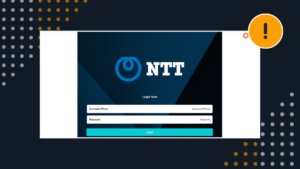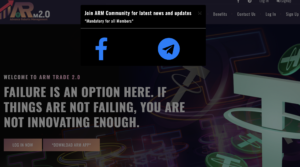An In-Depth Insight into Ethereum and Ethereum Token Scams
Ethereum has emerged as a powerhouse in the cryptocurrency world, second only to Bitcoin in terms of market capitalization and influence. Its innovative smart contract technology and decentralized applications (dApps) have made it a favorite among developers and investors alike. However, with Ethereum’s growing popularity comes an increase in scams targeting this blockchain network and its associated tokens. Understanding how these scams work and knowing how to protect yourself is crucial. This article provides an in-depth insight into common Ethereum and Ethereum token scams( USDT scams, USDC Scams etc), and explains how to report them effectively.
Understanding Ethereum and Ethereum Token Scams
Ethereum is more than just a digital currency; it’s a decentralized platform that allows developers to create smart contracts and dApps. These applications run on the Ethereum blockchain, using the native cryptocurrency, Ether (ETH), as well as a variety of tokens built on the Ethereum network, such as ERC-20 tokens. While this versatility has driven Ethereum’s success, it has also opened the door to a variety of scams.
Common Types of Ethereum and Token Scams
- Phishing Scams
Phishing scams are one of the most prevalent types of fraud in the Ethereum ecosystem. In these scams, fraudsters create fake websites or send fraudulent emails that mimic legitimate Ethereum-related services, such as wallets, exchanges, or dApps. Their goal is to trick users into revealing their private keys, seed phrases, or login credentials, which can then be used to steal their Ether or tokens.
Red Flags:
- Unsolicited emails or messages asking for sensitive information.
- Websites with URLs that closely resemble, but are not identical to, legitimate services.
- Urgent prompts claiming your account is at risk unless immediate action is taken.
- Fake ICOs and Token Sales
Initial Coin Offerings (ICOs) were a popular method for launching new Ethereum-based tokens. While many legitimate projects raised funds through ICOs, the space quickly became a breeding ground for scams. Fraudulent ICOs and token sales often promise massive returns on investment but deliver nothing in return. Scammers typically disappear with investors’ funds once the sale concludes.
Red Flags:
- Promises of guaranteed returns or unrealistic profits.
- Lack of a clear and verifiable team behind the project.
- Poorly written whitepapers or no whitepaper at all.
- Ponzi and Pyramid Schemes
Ponzi and pyramid schemes have found a new home on the Ethereum network, where they often take the form of decentralized finance (DeFi) projects or investment clubs. These schemes lure investors with promises of high returns, often paid out using the funds of new investors rather than legitimate profits. Eventually, the scheme collapses, leaving many participants with significant losses.
Red Flags:
- Promises of high returns with little or no risk.
- Pressure to recruit new investors to sustain returns.
- Lack of transparency about the investment strategy.
- Fake Wallets and Exchanges
Scammers create fake wallets and exchanges designed to steal your Ether or tokens. These malicious platforms often have websites or apps that look nearly identical to legitimate services, making them hard to spot. Once you deposit your assets, they vanish without a trace.
Red Flags:
- Unusually low fees or promotions that seem too good to be true.
- Lack of verifiable information about the service or its operators.
- Poor online reviews or no reviews at all.
- Impersonation Scams
Impersonation scams are common on social media platforms, where fraudsters pose as well-known figures in the crypto space. They often promise to double any Ethereum or tokens sent to them as part of a giveaway or charity event. These scams can go viral quickly, ensnaring thousands of victims.
Red Flags:
- Promises to double your Ether or tokens if you send them first.
- Requests for donations in ETH or tokens from unknown sources.
- Social media accounts that seem off, even if they appear legitimate at first glance.
How to Report Ethereum and Token Scams
If you suspect that you’ve encountered an Ethereum or token scam, it’s crucial to report it as soon as possible. Reporting these scams not only helps protect your assets but also aids in preventing others from falling victim to similar schemes.
1. Report to ReportCoinScams.com
One of the most effective platforms for reporting Ethereum and token scams is ReportCoinScams.com. This website is dedicated to collecting and investigating reports of cryptocurrency scams, including those involving Ethereum and its tokens like USDT (Tether) and USDC (USD Coin). By submitting a report, you contribute valuable information that can help stop scammers in their tracks.
2. Contact Local Authorities
In addition to online reporting, contact your local law enforcement agency or financial regulatory body. Many countries have specialized units for dealing with cybercrime and cryptocurrency fraud, and your report can aid in their investigations.
3. Notify the Exchange or Wallet Provider
If the scam involved a specific cryptocurrency exchange or wallet provider, notify them immediately. Reputable platforms often have fraud prevention teams that can investigate the issue and possibly help recover your funds.
4. Spread Awareness
After reporting the scam, consider sharing your experience on social media or online forums. By spreading the word, you can help raise awareness and prevent others from falling victim to similar schemes. Communities like Reddit and Ethereum-specific forums are great places to share your story and gather support.
Conclusion
Ethereum’s success has brought with it a wave of scams that target both new and experienced investors. Understanding the common types of Ethereum and token scams, recognizing the red flags, and knowing how to report them are crucial steps in protecting your investments. By staying informed and vigilant, and by utilizing platforms like ReportCoinScams.com, you can help protect yourself and others from the growing threat of cryptocurrency fraud. Remember, in the world of crypto, a little caution can go a long way in safeguarding your digital assets.

















